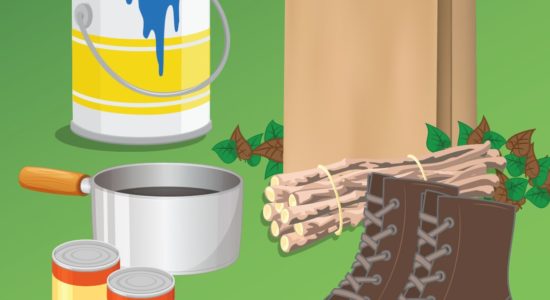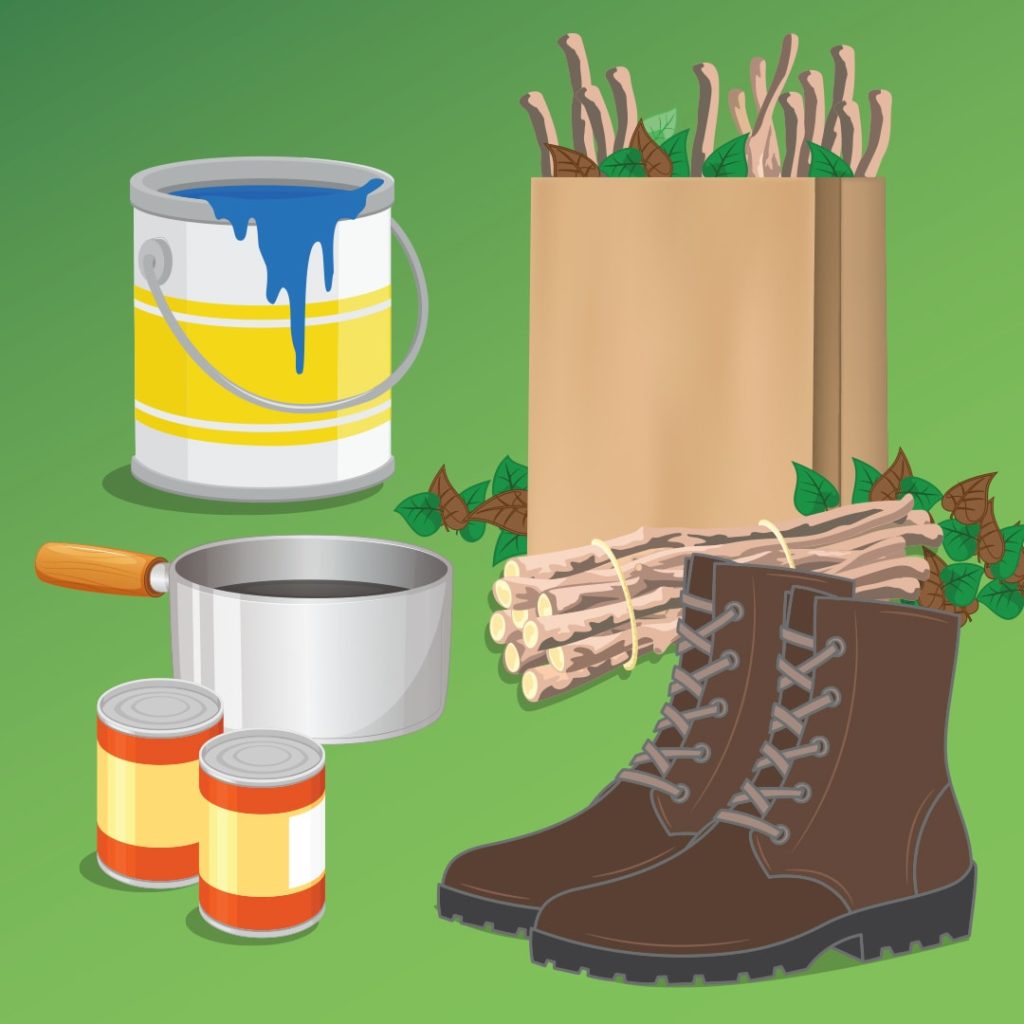One Stop Guide for Responsible Spring Cleaning

May 22, 2020
Most people engage in the annual ritual of spring cleaning. They take advantage of the longer, warmer days to air out and deep clean their houses that have been closed up all winter.
With most of us spending more time at home thanks to Ohio’s shelter-in-place order, chances are there’s going to be a whole lot of spring cleaning going on in the coming weeks.
As you clean, purge and organize, please remember that even during a pandemic, we must continue to recycle, reduce and reuse. These “3 Rs” are critical to diverting waste from the landfill and protecting our environment.
To help you do this, we offer these suggestions for responsible spring cleaning.
Closets
Your closets are probably filled with accessories you don’t use, clothes that don’t fit and shoes you’ve haven’t worn in years. Clear these items from your closet, but don’t throw them away. Donate them instead. Several organizations, including Goodwill, the Salvation Army and Volunteers of America, are still accepting donations, although at limited sites and during limited times. Visit their websites to find out when and where you and can take your donations.
Kitchen
As you clean cupboards and drawers, don’t toss items you no longer want or use. Give them to one of many nonprofit organizations around town, like the Furniture Bank of Central Ohio, that accept pots, pans and other kitchenware in good condition and give it to families in need. The Furniture Bank will begin taking donations again on April 28, but on a limited basis. Or, like the items from your closet, you can keep your kitchenware until your favorite organization is taking donations again.
You can also take steps to reduce the amount of food you send to the landfill. Start by donating non-perishable food items to a local food pantry or food bank, like the Mid-Ohio Food Collective. If you have food scraps, try composting them. Our “Compost at Home” guide and Backyard Composting video explains how to start your own compost system at home. It’s easier than you think, and it’s a good way to create nutrient-rich compost for your lawn and garden.
Many Central Ohio communities, with the help of SWACO, have also implemented residential food waste composting drop-off programs. Check with your local municipality to determine if a drop-off program is available in your area.
Finally, using the garbage disposal to dispose of appropriate food items is another good solution to avoid putting it in the trash. Many times, when the food from the disposal arrives at the waste water treatment facility, it is turned into compost.
Garage and Basement
Motor oil, paint and pesticides are examples of household hazardous waste materials often found in garages and basements. These types of products should never be thrown in the garbage because they pose hazards to sanitation workers, wastewater treatment systems and human health. The household hazardous waste pick-up events scheduled around Franklin County this spring have been cancelled because of the coronavirus crisis. But SWACO’s household hazardous waste facility is open for drop-offs.
If you want to get rid of bulky items like carpet and mattresses or hard-to-recycle items like batteries, electronics and scrap metal, SWACO has a search tool that can help you find a location that accepts and properly disposes of these items. So before you throw anything away, check out the search tool. Make the garbage the last resort!
Yard
Franklin County’s curbside waste and recycling program allows residents to leave yard waste at the curb for pick up. The yard waste is then turned into mulch and made available for sale to consumers. This program keeps millions of tons of yard waste out of the landfill every year.
Residents can also compost their yard waste. Composting food and/or yard waste is a relatively easy and inexpensive process that results in nutrient-rich soil for plants, lawns and gardens. To encourage people to compost, the Franklin County Soil and Water Conservation District offers a $50 rebate, funded by SWACO, through its Community Backyards program to anyone who installs a compost bin or rain barrel or plants native plants and trees in their yards.
Please keep these tips in mind as you begin your spring cleaning – and don’t let the stay-at-home order lessen your commitment to recycling, reducing and reusing. Every little thing you do adds up and makes a big difference for our environment and for our community.
